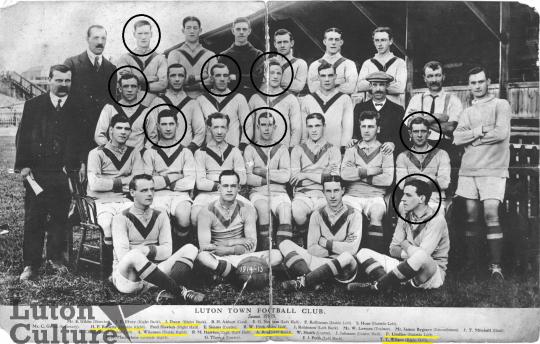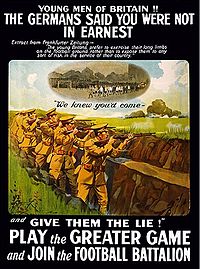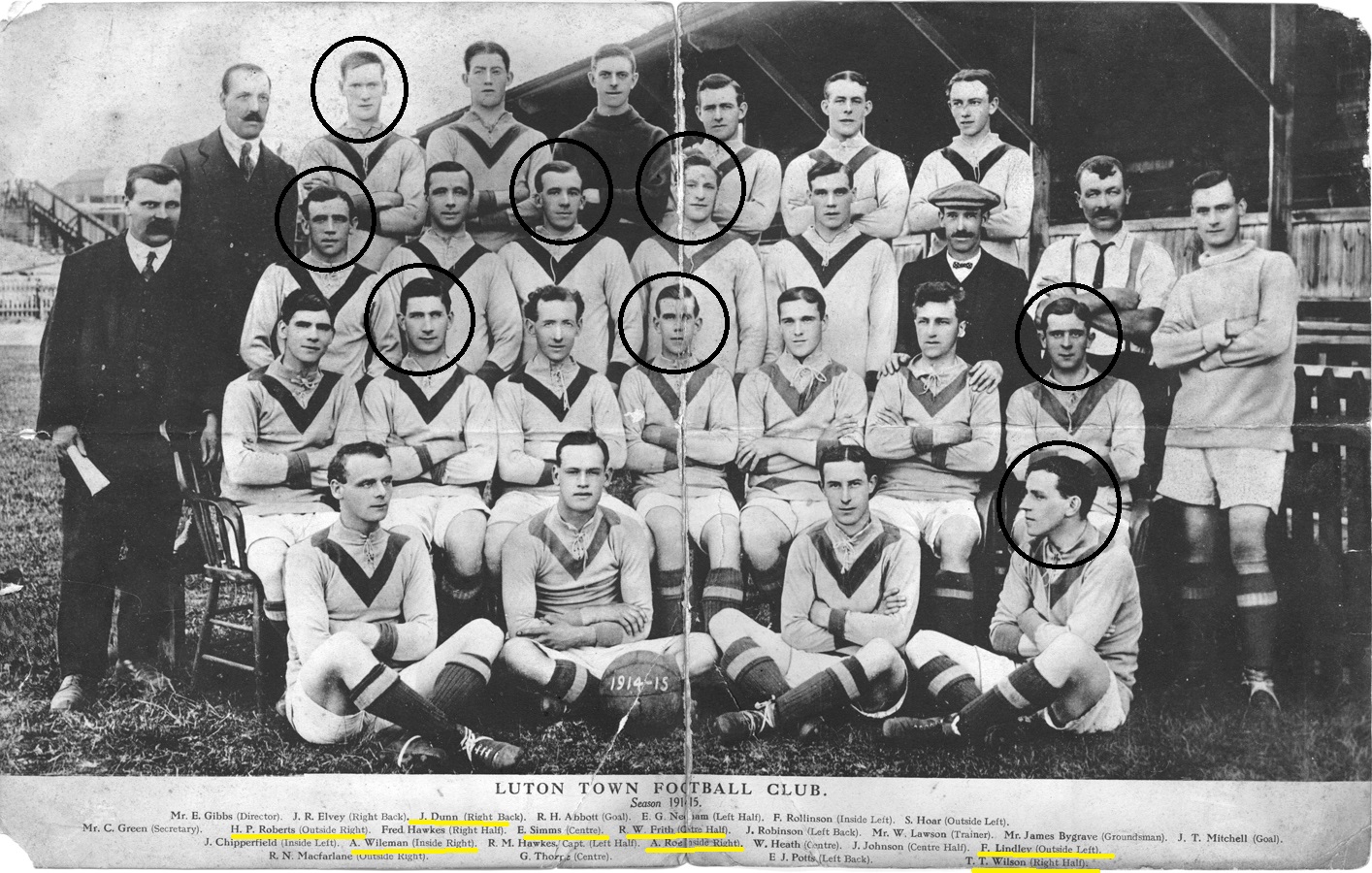Eight Luton players join the Footballers' Battalion
Event date
Related items
Media files and documents
Luton ward
Source
Source Date

The Luton News of 17th December 1914 describes how "members of the Luton Town football club have come forward splendidly to join the Footballers' Battalion."
When war broke out close to the start of the 1914-15 season, Luton Town had just been promoted into the First Division of the Southern League. The Football Leagues announced that the 1914-15 season would run as usual. Players were under legally binding contracts until the end of the season and in any case general opinion in England was that the war would be over by Christmas.
Some felt that all forms of entertainment should be curtailed in time of war and the campaign to close down football began almost immediately. A number of draconian measures began to be suggested in the national press: all professional contracts should be cancelled, football pools should be stopped, no one under the age of 40 should be allowed to attend matches.
Professional clubs began to publicise their response to the war which included regular collections for War Relief funds, recruitment speeches at football matches and making their grounds available for military drill. They were unable to appease their opponents particularly when it became clear that only a small number of footballers had voluntarily enlisted and that they mainly came from Northern clubs.
Against this background, William Joynson-Hicks, MP for Brentford was given permission from the War Office to form a battalion of footballers in the Middlesex Regiment. They aimed to recruit both professional players and football supporters who might want to serve alongside their heroes. A public meeting was held at Fulham Town Hall on 15th December 1914 and clubs from London and the South East were urged to attend.
Luton Town was represented by their diminutive and skilful winger, Hugh Roberts, who had joined the club in 1913 and the wing-forward Frank Lindley who had signed for Luton that season. The Luton News reports that at the close of the meeting, these two were amongst the first five players to step up and enlist. Altogether 35 new soldiers were recruited at the meeting and given 10 days leave immediately. They would be paid 2 shillings and ninepence a day in addition to their club wages and would continue to play for their clubs until the end of the season whilst training in the UK. A report In the Luton News the previous week described how Luton players recently had their wages reduced and then temporarily stopped due to falling gates, so this must have been a tempting offer for the two men.
On returning to training at Luton the following morning, Lindley and Roberts encouraged their team mates to consider signing up and subsequently another six Luton players (Dunn, Frith, Wilson, Wileman, Roe and Simms) travelled to London by train that afternoon and enlisted at Battalion Headquarters in Kingsway.
Details of the footballing careers and military service of each of these players can be found on the Great War Stories website under People.
For further information about the Footballers' Battalions (17th and 23rd Battalions, The Middlesex Regiment) read : "When The Whistle Blows" by Andrew Riddoch & John Kemp, published 2011 by Haynes Publishing.
Images of the Luton Town team are usedwith kind permission of Roger Wash, Luton Town Football Club Historian
Event Place
Author: HillC




Add comment